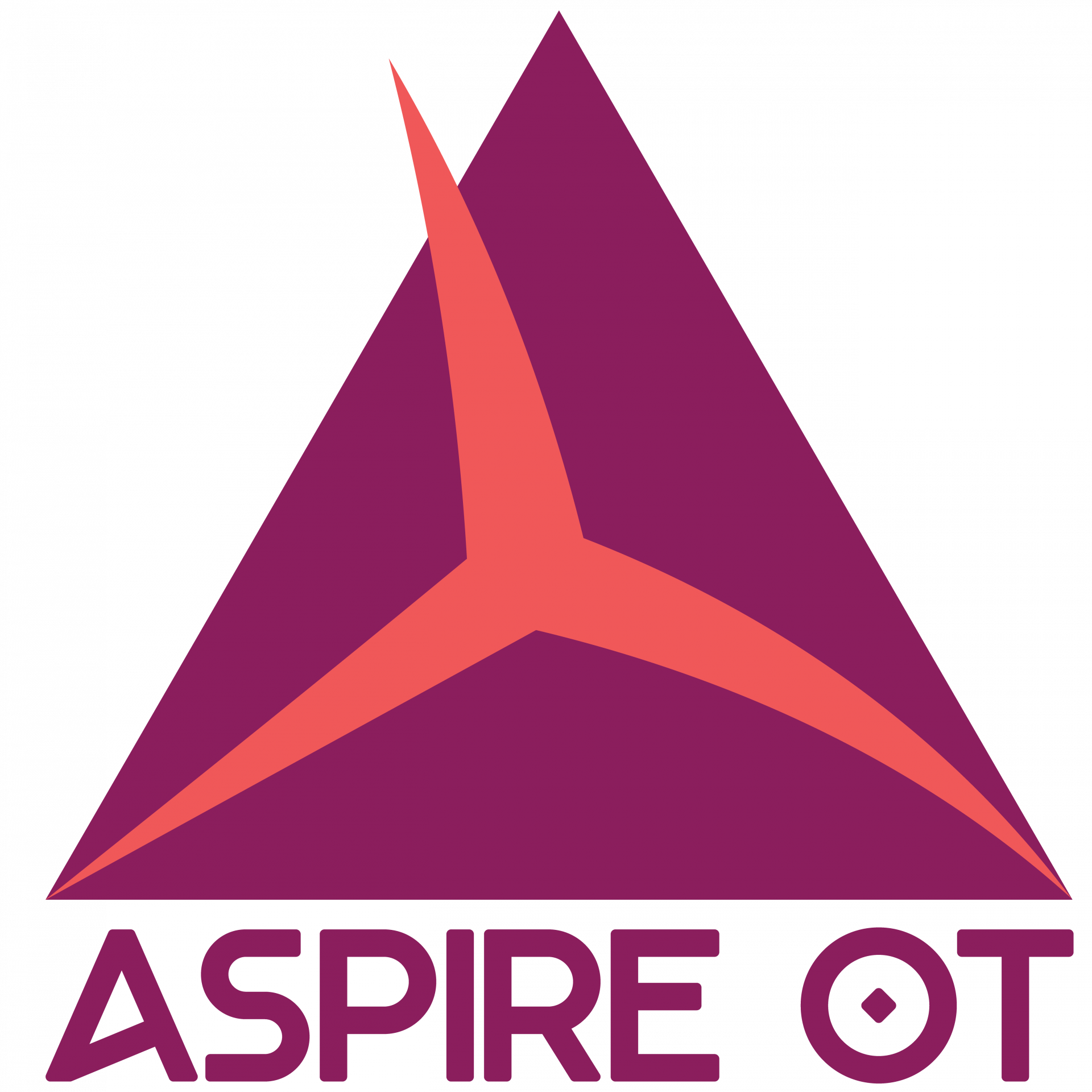If you found yourself here, I’m willing to bet that you are feeling
that your job as an occupational therapist or occupational therapy assistant is
pretty stressful. You’re not alone. Over
80% of Americans reported feelings of prolonged stress in a
2021 American Psychological Association Survey. Particular to OT, one
recent study found that OT practitioners and students reported having
moderate stress and having feels of well-being less than half of the time.
During a vacation last week, I found myself really
reflecting on resting and recharging. We all need time off and a break from the
daily flux of emails and to dos. Yet, none of us are probably able to get away
as much as we like. Could it be possible though to make small changes to help
us navigate through our workdays in a way that seems less draining?
Remember, we teach our clients that small changes are often
the most impactful over time. We rarely give training to a client to re-arrange
their habits and routines in a big way because we know that is hard. Could we
just apply a little of our own training to ourselves? Full disclosure here: I
am AWFUL at “occupational-therapying” myself. It is something that I am working
on little by little though with some results.
Even though we are often
spending more time working than ever before, we also have less leisure time
than ever before. We’re also dealing with more depression and anxiety
post-pandemic. Remember too that we work
with the public who are feeling anxious, depressed, or stressed overall too.
Plus typically folks who are receiving OT services have added stress to their
lives due to accident, injury, or illness. This means more pressure on you at
work as you try to meet each of your client’s needs! All of these things can
leave you feeling exhausted and drained, and it’s not good for you.
So that all sounds pretty
stressful just reading it. Yet, the purpose is to identify what may be going on
so that you can begin to act. Slowly! Manageably! Remember you don’t have to
change all at once. What might be helpful though? It can be as unique as you
are. Be curious and try things. You can begin to see what works and then build
your preferred go-to tools and actions for recharging and rest! Research says
there are lots of options. One review found
that mindfulness-based interventions for registered nurses and students were
effective at lowering anxiety and had positive benefits in handling situations
that are stressful involving clients and co-workers. Visiting large urban parks
and woodlands after work helped reduce stress effects in another study. Humor may help nurses cope with stress and long working
hours according to a different study.
Here are some ideas to help you rest and recharge during
your job as an OT or OTA. These could also be effective for students as well.
1. Take a mental vacation
Okay, so I don’t mean
completely space out during an OT session! I find that as my stress builds at
work. I can feel overwhelmed, hot, and pressured. As I move between clients
(even if only for 2 minutes) I can visualize a scene that is soothing or
relaxing. I often visualize walking a short path onto the top of a clear,
beautiful mountain with a breeze blowing. With practice, I can conjure that
image and the sensory “feelings” of that scene very easily even with my eyes
open. Even as I typed about it that image came up in my mind. My shoulders drop
(which are usually hitched up in stress) and I can feel my muscles start to
unclench. If I am struggling to focus on the next client as I transition, I can
even imagine that the client is waiting for me up on the mountain where there
aren’t any distractions. I use mountains. You could use the beach, a lake dock,
and a cozy reading corner. Whatever works for you.
2. Prime your environment to make you smile
I enjoy having small things
in my environment that make me smile. I’ve used our Christmas card which has
pictures of my family during the year to post where I leave my belongings when
I am at work. Maybe it is a small, cheerful plant that you see on your desk or
where you treat clients. Having those things that make me smile helps me bring
myself back to the present so I can get out of my head (I tend to be an
overthinker), realize there are other things than what seems hard at the
moment, and come back to the present moment where I am smiling from that small
spark of joy the object caused.
3. Move
As OTs and OTAs, we usually
have pretty physical jobs already. I find though if I take the time to stretch
or walk as a quick break or during my lunch this can feel huge. Extra points if
I can catch 5 minutes outside for this. Many of us work during lunch. I know
that is hard, but I find that I am more focused and productive if I take even 5
minutes for a break and some movement.
4. Check in with yourself
I use triggers in my
environment to redirect myself to the present moment which allows me to
check-in and breathe. One of the ones right now I use is the elevators at the
hospital where I work. When I find myself waiting for the elevator, this is my
cue to take a deep breath and focus on the feeling of my feet on the floor (or
other sensory information around me). If I notice that I am feeling pressured
or anxious, I try not to judge and notice the sensation that helped me identify
those feelings. I can redirect myself to my breath. This helps to reset my stress
level. Sometimes for me as the day builds so does the stress and the internal
pressure I feel. Having these strategies helps me defuse that build-up! I love
this one because honestly, I can do this even around folks waiting with me and
no one has any idea!
5. Mindfully walk into work
Does the dread hit you before
you even park your car for work? That’s awful! I’ve had that feeling sometimes.
It grows as you walk towards the door. Maybe it is a session you are dreading
or a situation that you are just sure is going to rear its ugly head today.
Walking with that awful feeling in your stomach is a hard way to start your
day. I use mindfulness to help diffuse the dread. Once I park, I work to notice
1 new thing every time I walk into work. I can be anything I see, hear, or
smell. I love when I notice the first signs of spring in a tree that I’ve
walked past two days before and didn’t notice. It could be a beautiful cloud
that morning with a rosy glow. I promise it is completely possible to find that
new thing every day. It cultivates a small piece of joy that chases away the
dread.
6. Know what makes you laugh
Cat videos. Every time will
get me a chuckle. I also happen to like Dungeons and Dragons memes because I am
nerdy like that. Okay, so what does this even have to do with stress? I
mentioned the study on humor earlier in the blog. Humor does help. Can you put
a funny comic where you can see it? Is there a website of jokes that gives you
a chuckle? Check it out on one of your breaks. I’ve even flipped through a few
funnies just before I left to the house to put a smile on my face as I started
my day.
Try some of these on for
yourself. Everyone is different, but you want to try to find small things that
bring on even small feelings of reassurance, relaxation, joy, or peace. These
small changes can add up over time. That has been my experience at least.
I do want to say if you are
facing mental health factors that are impacting your daily life then please
seek help or guidance from an employee assistance program or a mental health
provider. As OT practitioners, we know that mental health is an important part
of being well. I don’t want my suggestions to be mistaken for a solution for
long-term mental health challenges.



